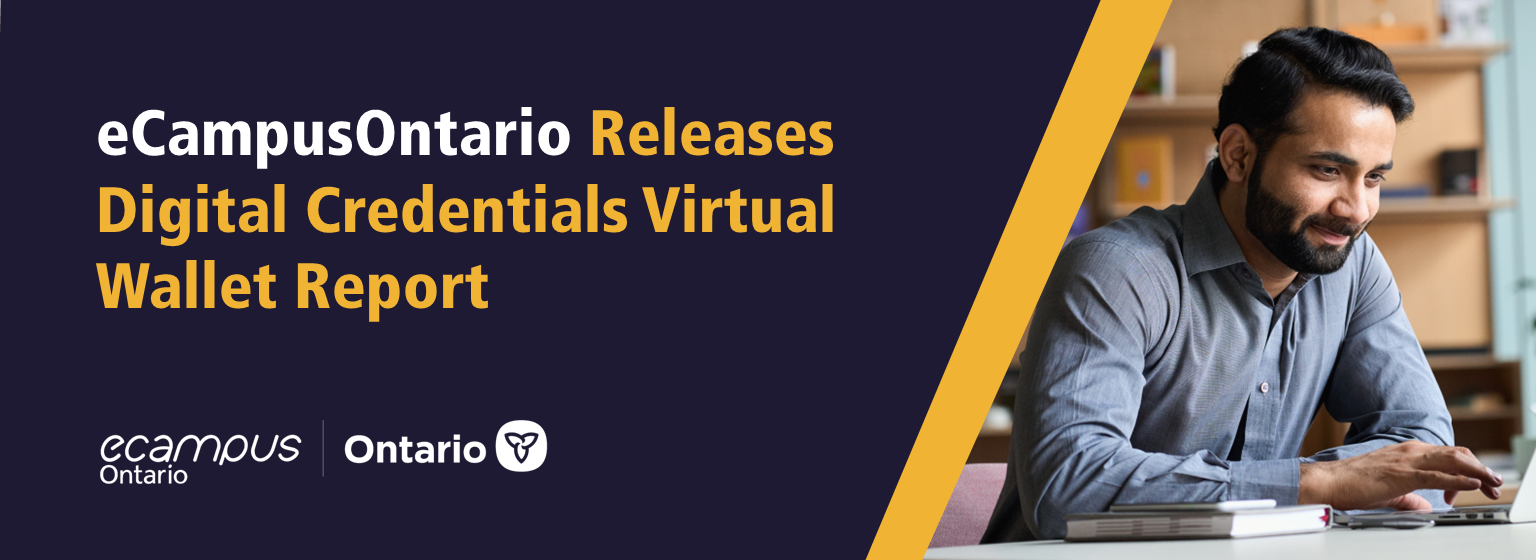
eCampusOntario Releases Digital Credentials Virtual Wallet Report
eCampusOntario released its report, Wallets, Passports, Portfolios, Credentials: What Learners Want in a Virtual Education Wallet this past month, representing a year’s worth of research into student perceptions of digital credentialing. In 2022, eCampusOntario was tasked by the Government of Ontario to complete a consultation of learners from across Ontario’s colleges, universities and Indigenous Institutes who had completed the requirements of a micro-credential.
The report, produced by eCampusOntario’s Research and Foresight Team, found that learners overwhelmingly indicated their interest in using a virtual wallet for both micro-credentials and other educational qualifications. Learners also expressed interest in how wallet systems would function, their universality and security.
Serving as a voice for Ontario micro-credential learners, the results of the report are intended to help inform Ontario’s postsecondary sector develop virtual wallets for digital educational credentials. Incorporating learner preferences from this study into the design of virtual wallet systems will support greater access, use and adoption by learners.
“The research carried out by eCampusOntario clearly indicates that learners are interested in and receptive to virtual wallets for storing their educational credentials,” said Jill Dunlop, Minister of Colleges and Universities. “To ensure seamless access, use and adoption, factoring in feedback directly from learners in the development of virtual wallets will be critical.”
“As micro-credential options expand for learners and help them gain skills that support their career paths and the Ontario economy, the need to provide verifiable credential platforms that reflect learner needs is a priority,” said Robert Luke, CEO, eCampusOntario. “The potential here is vast – from verifying what has been learned to supporting international recruitment.”
Other key findings that emerged from the data collected includes:
- Employability and obtaining future education are the main reasons why learners would want a virtual wallet for their educational credentials
- Learners would prefer educational wallets be stored in an existing virtual wallet such as Apple Wallet or Google Pay
- Learners are concerned about how employers recognize micro-credentials and digital credentials
- Learners are concerned about how their data is protected, and how to share wallet data with potential employers and others
- Learners prefer a central repository to hold all their credentials
- Learners would like to have the ability to choose which credentials they can display to potential employers
- Learners expect a digital wallet service to be free and user friendly
Wallets, Passports, Portfolios, Credentials: What Learners Want in a Virtual Education Wallet is made possible with funding by the Government of Ontario.
